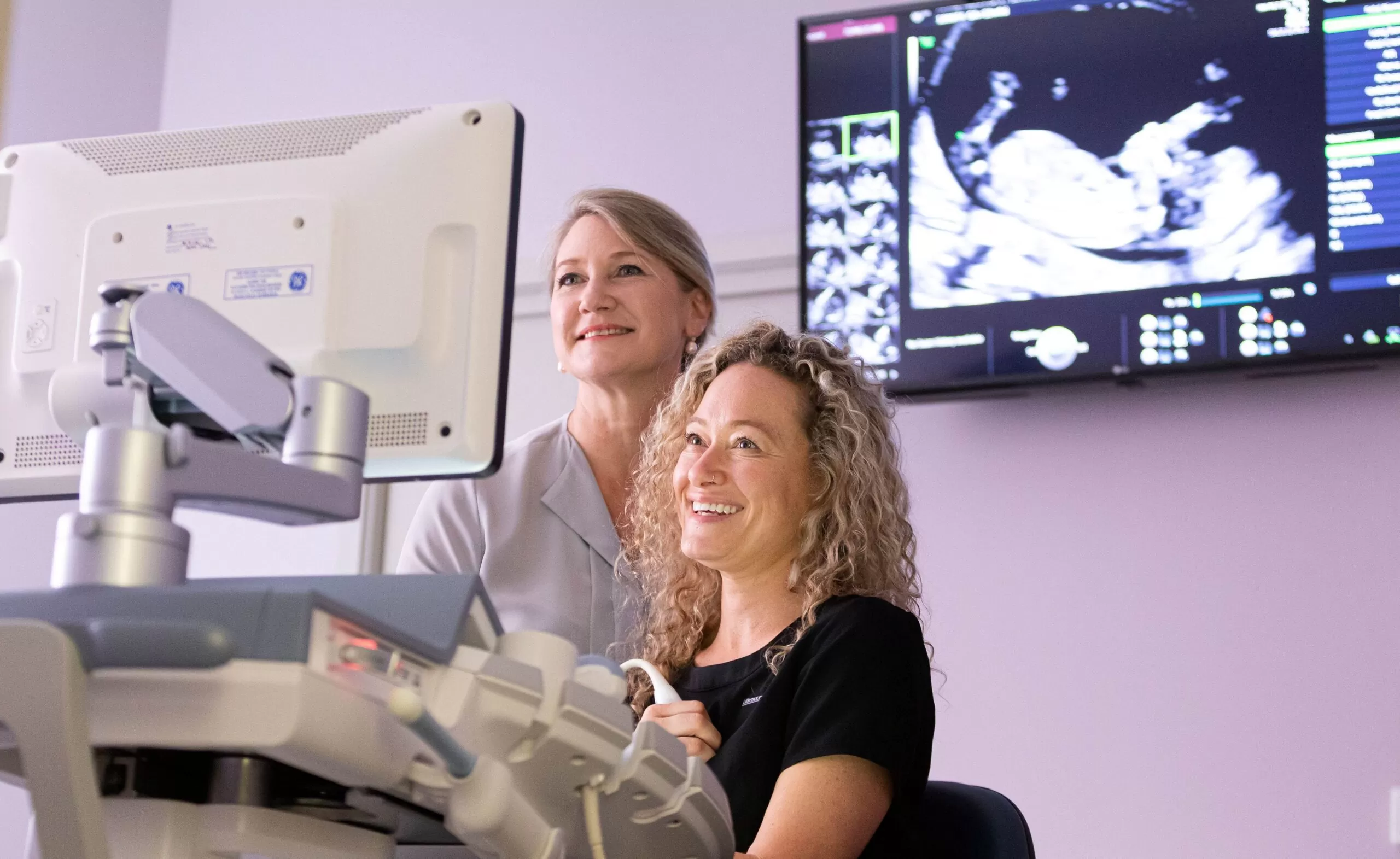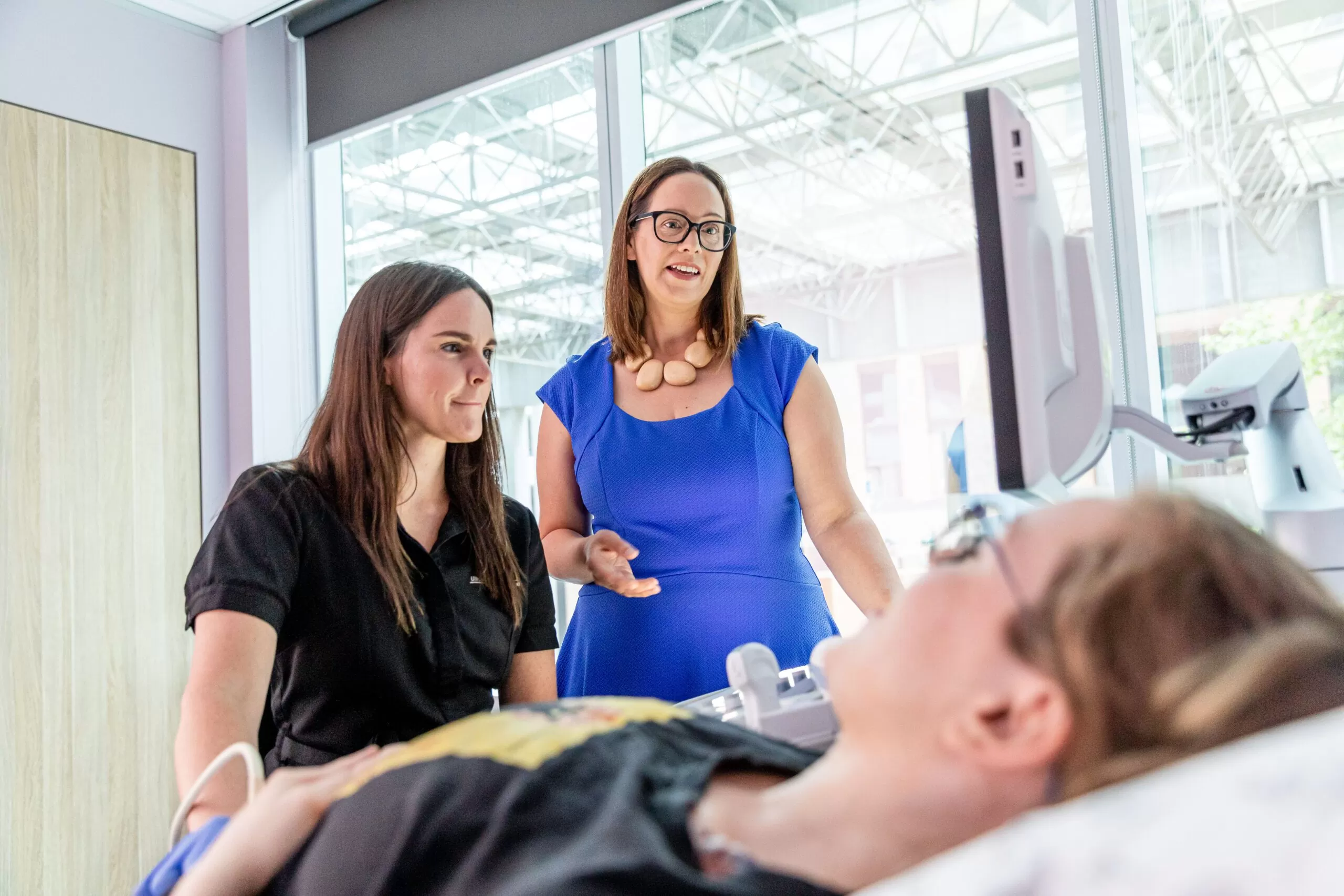Ovarian Cancer Screening
Why screen for ovarian cancer?
Each year approximately 1400 women are diagnosed with ovarian cancer. It is the fifth most common cause of cancer deaths in women, behind breast, colon, lung and pancreatic cancer. The symptoms are often vague and similar to other common illnesses, so many are diagnosed at a late stage. The outcomes are better if it is diagnosed earlier.
The Ultrasound Care team of specialist doctors and sonographers are experts in the diagnosis of women’s gynaecological conditions which is why your doctor has referred you to our practice.
What are the symptoms of ovarian cancer?
The symptoms of ovarian cancer can be vague and not specific. They are more often related to much less serious health conditions, and some women who have ovarian cancer will have no symptoms.

The symptoms can include:
- Bloating
- Difficulty eating and feeling full quickly
- Passing urine more frequently
- Increasing constipation
- Menstrual irregularities
- Feeling tired
- Indigestion
- Lower abdominal pain
- Pain during intercourse
If you are experiencing any of these symptoms, you should speak to your family doctor or your gynaecologist.

Who should have screening for ovarian cancer?
Despite a lot of research, unlike bowel or cervix screening tests, there is no test effective enough for ovarian cancer that can be recommended to all women. Some women have an increased risk, and your doctor may recommend a pelvic ultrasound with a blood test to check this.
A family history of ovarian cancer is an important risk factor in developing the disease. A family history of breast cancer and or bowel cancer are also risk factors. Some families are found to carry genes which increase their risk of developing ovarian cancer. Your doctor will be able to discuss your individual risk with you.
Women who carry these genes are often recommended to have surgery to remove their ovaries or screening with a pelvic ultrasound and CA125 level at regular intervals, sometimes every 6-12 months. Although the optimal screening interval is not known.
Ultrasound can be a useful tool for assessing the ovaries, particularly post menopause.
The blood test CA125 screens for a protein found in the blood that can be produced by ovarian cancer cells. It can be raised for many reasons including menstruation, endometriosis and ovarian cysts. Half of all women with early disease do not have an elevated level, so it should not be used alone.
Transvaginal ultrasound will help in assessing why a CA125 level is raised and may even find early disease that a CA125 level may have missed. But not all early cancers are seen on ultrasound, so if your symptoms persist, your family doctor or gynaecologist will wish to know.

How do I arrange for ovarian cancer screening?
If your doctor believes you are at risk and require screening, they will refer you for further testing. Once you have your referral, please call an Ultrasound Care practice that is most convenient to you in Sydney to arrange for your appointment.





